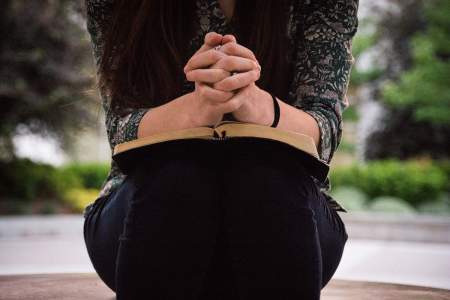UK Christian group ‘alarmed’ by push to criminalize prayer in ‘conversion therapy’ ban

A Christian group in the U.K. has said it is alarming that the government is being urged to include in its proposed "conversion therapy" ban even “gentle non-coercive prayer” to help individuals overcome unwanted sexual attractions or gender identity confusion.
While not opposing a ban “that protects people from harmful pseudo-medical practices,” the Christian Institute said, “the idea that ‘gentle non-coercive prayer’ should be included in a list of illegal actions is alarming.”
“In any event, it would violate the human rights of believers,” added the charity that exists for “the furtherance and promotion of the Christian religion in the United Kingdom” and “the advancement of education.”
The charity issued the statement in response to a call from Jayne Ozanne, a prominent lesbian Anglican and former LGBT government adviser who is pushing for “gentle non-coercive prayer” to be included in legislation banning LGBT conversion therapy.
Supporting the ban, David Walker, the bishop of Manchester, told the Guardian earlier this month, “Where activity has harmed someone, the person who has caused the harm should face prosecution.” He added that activity should include prayer aimed at changing someone’s sexual orientation.
However, Walker clarified that he was not referring to “gentle, non-coercive prayer, but where there is a level of power imbalance and a level of force.”
Ozanne, who's also pushing for full acceptance of same-sex marriage and transgenderism in the Church of England, responded to Walker’s clarification, saying, “I’m very grateful to Bishop David for his clear support for a ban, although I would strongly refute that ‘gentle non-coercive prayer’ should be allowed.”
She added, “All prayer that seeks to change or suppress someone’s innate sexuality or gender identity is deeply damaging and causes immeasurable harm, as it comes from a place — no matter how well-meaning — that says who you are is unacceptable and wrong.”
The Christian Institute said its view is “confirmed by a legal opinion from Jason Coppel QC, one of the U.K.’s leading human rights lawyers, which says a conversion therapy ban encompassing ordinary prayer ‘would be likely to violate Convention rights.’”
The charity stressed that “those pushing for the ban to include ordinary prayer seem to attribute the worst possible motives to those of us who hold different theological beliefs from them.”
“They are not willing to listen to mainstream Christian groups or to their concerns. Now they have gone a step further by stating that the legislation should cover not only practices they consider coercive but all forms of prayer, no matter how mild,” it added.
Responding to Ozanne’s remarks, Simon Calvert, deputy director for public affairs at The Christian Institute, said, “It shows the focus here is not about protecting people from genuinely abusive behavior. It’s about criminalizing mainstream theology that campaigners on the fringes of the church don’t agree with.”
Calvert added, “In Britain, we worked out centuries ago that prosecuting people for praying ‘the wrong kind of prayer’ was oppressive, counter-productive and wrong. Apparently, there are some who want to drag us back to the dark days of prosecuting people for not having the same religion.”
Conversion therapy is being defined as any effort to change one’s sexual orientation or gender identity. A bill banning conversion therapy is expected to make its way through Parliament later this year.
Some LGBT activists are calling for a complete ban on any practice that seeks to help individuals overcome unwanted sexual attractions or gender identity confusion. And such a ban would also prohibit prayer and pastoral support.
Proponents of such a ban say the practice is cruel, ineffective and contributes to suicide among LGBT-identifying people.
Opponents of a therapy ban argue that the term conversion therapy belies what is actually occurring, particularly in Christian churches and ministries, because electroshock and other forms of aversion treatments have been against the law for many years.
What is practiced in some therapeutic environments — often though not always religious — is talk therapy, where individuals who present with conflicting feelings or distress regarding their sexual attractions or gender confusion speak with a counselor.
The Christian Institute's Deputy Director for Communications Ciarán Kelly said in an earlier statement that it's “deeply worrying to see the level of ignorance of the beliefs and practices of mainstream Christianity on display from some of these MPs.”
“Of course we believe people should be protected from quack therapists and charlatan preachers. Most of these practices are already illegal and we would urge the government to ensure the law is applied properly,” he said, adding that “there must also be room for the preaching of God’s Word and for believers to receive prayer and pastoral support, whatever temptations they are facing.”
Kelly continued, “A pastor or church should not face prosecution if a gay man or woman attends church, comes to faith and seeks help in following Christ’s teaching on sexual ethics.”






















